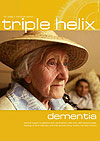Retired member Stephen de Garis, living in Switzerland, writes from his own extensive experience of work overseas:
I feel I must comment on Vicky Lavy's article in the last issue (1) which followed Helen Barratt's. (2) I wring my hands in despair at the topic, as will surely all people of good will. The answer to the question is surely: Yes, that is how God sees the world. No one with any information would dispute the enormous wrongs so eloquently put in both articles. That is not the issue – we know the problems; the analyses to address the issues are the problems – in both articles!
Most would go along with at least part of the 'Millennium Development Goals' and with Vicky Lavy's 'What could you do?' recommendations, but appealing to Christian doctors is missing the goal. Helen Barratt refers to the 'Make Poverty History' campaign, established in 2005 when the UK hosted the G8 summit, and she then rightly notes that halfway to the MDG target date of 2015, further action is needed and governments must be held to account. My question is: which governments? Vicky Lavy refers to 'the $700 billion which the US government is finding to rescue its financial system', implying that this measure might be wrong, instead of channelling at least some to 'the world according to child mortality'.
I found a most interesting remark in Peter Armon's article (3) on his experience revisiting Malawi: there were 'more tarmac roads and posh hotels' but 'the statistics I was given were no better, and in some cases worse, than they had been 40 years ago'. Sadly this is the reality, but why? That is why I find Dr Lavy is 'comparing oranges with apples'. The divide is not so much that between rich and poor countries, but that within the needy countries themselves. This is why meeting the need is not financial from outside. Politics, admin-istrative mismanagement and corruption cover the major issues for addressing poverty and disease. Would any sensible person or government give money now to the Mugabe regime? Yet we all know the tragedy of this erstwhile 'bread basket' of Southern Africa.
Then what about the brain drain of doctors from Africa and other continents to western countries? Apart from postgraduate training (which is valuable aid), should the recipients not then go home to address the needs of their own people? Should western countries be penalised for employing doctors from Developing World countries for their own health services?
I am merely trying to show that the way to meet the desperate needs is not simply by sending funds and western doctors. Finally, lest it be thought I am unsympathetic to these problems, I have been privileged to work in some poor countries and have seen how things operate. I am now ageing and can only give on a discriminating basis to work overseas, as I am no longer able to go personally. May the Lord give all concerned guidance on how we might help realistically to meet the ongoing challenges of controlling and treating disease overseas!
Vicky Lavy replies:
The issues around global health inequality are complex and challenging – my short article merely highlighted one aspect; that of the enormous divide between rich and poor countries. The issues of injustice and corruption within poor countries themselves are very real barriers to development, as Dr de Garis rightly points out, and encouraging the richer nations to share their financial and manpower resources is not the whole answer. 'In sub-Saharan Africa, 3% of the world's health workforce cares for 10% of the world's population, bearing 24% of the global disease burden.' (4)
Developing countries need an extra 4.3 million health workers – this must be addressed on many levels: improving training, fighting the brain drain, and addressing unethical recruitment by rich countries of health workers who are desperately needed to stay in their own resource-poor countries. However, I believe there is still a place for western doctors to go and stand alongside their national colleagues and share both the training and clinical workload.
I also believe there is still a case for a more equitable sharing of financial resources between rich and poor countries. Europe and USA currently consume 85% of the world's health expenditure, while Africa enjoys less than 1%. Even in the absence of any corruption or mismanagement, this will never be enough. The question is, do we wait until we can be completely assured that financial support will be used well before we give it? While we must make every effort to ensure responsibility and accountability, I believe we have to accept that there is always an element of risk in giving.
It is interesting that Dr de Garis cites Zimbabwe as an example of a country to whom it would be unwise to send financial support. CMF is currently doing this – but not via the government. We have found a channel which we believe is secure and reliable, and while our support is unlikely to have any lasting effect on the development of the nation, we are responding to the desperate need of the people our Zimbabwean colleagues are seeking to serve.
I am grateful for Dr de Garis' thought-provoking letter which highlights the complexities of these issues, and agree with him wholeheartedly that we need God's guidance to respond wisely.































